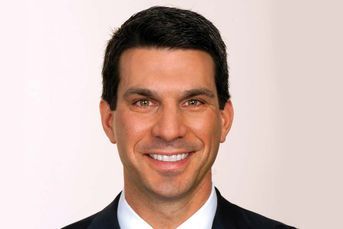The SEC may be gentler without its roaring lion
When Arthur Levitt, the top securities cop, officially retired Friday, that breeze blowing down Wall Street was likely…
When Arthur Levitt, the top securities cop, officially retired Friday, that breeze blowing down Wall Street was likely a collective sigh of relief.
After all, Mr. Levitt’s eight-year reign as chairman of the Securities and Exchange Commission was marked by rules favoring the individual investor that often put him at loggerheads with powerhouses in the financial services industry.
Now a Republican appointee from President Bush will fill the empty chair – meaning chances are good for a kinder and gentler SEC.
“Levitt painted companies into a corner a lot,” says Louis Thompson, president and CEO of the National Investor Relations Institute in Vienna, Va. “I think that that, as an attitude, will change with a Republican chairman.”
But for investor advocates, it could also mean the previous focus on leveling the playing field between small and large investors would completely disappear.
“Is the new SEC [chairman] going to be a pragmatist or an ideologue?” asks Mercer Bullard, a former SEC lawyer who is CEO of Fund Democracy LLC in Chevy Chase, Md.
“My concern is that ideology will drive decisions instead of fair-minded analysis,” says Mr. Bullard, whose company acts as an advocate for mutual fund shareholders.
agenda called unusual
Others say Mr. Levitt’s vigorous pro-investor agenda was unusual anyway.
“I don’t think we’ll see an activist chairman like Levitt for a while, from either party,” says Mr. Thompson. “They tend not to come in with as strong an agenda as Levitt did.”
The rumor mill has been churning out names for a replacement since Mr. Levitt’s retirement announcement in December.
The short list, according to insiders and published reports, now includes James Doty, a former SEC general counsel who is law partner at Baker Botts LLP in Washington, Rep. Christopher Cox, R-Calif., and former SEC commissioner Joseph Grundfest, a law professor at Stanford University.
As of Friday, the White House had taken no action to replace Mr. Levitt.
The expectation from insiders is that Laura Unger, the commission’s lone Republican member, soon will be named acting chairman.
But an SEC spokesman says there is no requirement that an acting chairman be appointed – meaning the agency theoretically could be leaderless for several months.
As with all Bush nominees, that person will then face a Senate hearing and confirmation, which can stretch into a monthlong process.
And until a new chairman is in place, significant new regulations are unlikely. The agency indicated late last month that it would not move on any major initiatives until a new chairman came aboard.
While industry trade groups say they have little on their agenda in terms of new regulation, they are gearing up to get already-passed regulations reviewed.
According to Mr. Bullard and others, one of the most vulnerable provisions is Regulation FD (fair disclosure). Implemented in October, the controversial rule requires public companies to release market-moving information to all investors simultaneously.
Indeed, the Securities Industry Association already wants the SEC to study the effects of Regulation FD.
“It’s no secret how we felt and still feel about Regulation FD,” says Dan Michaelis, an SIA spokesman. “One of the things we’d like to see from the SEC is a careful monitoring of how Regulation FD, in practice, is impacting the markets.”
Mr. Thompson says NIRI is equally interested in the SEC’s reexamining the regulation. “We’re not advocating abolishing it, but simply making it better,” he says.
In addition, a Republican chairman means the likely death of the pension “pay-to-play” rule, say insiders.
The rule, proposed last year and now merely awaiting a commission vote, would bar money managers of public pension funds from making political contributions to officials who hire advisers.
But no one expects regulatory action from the agency to halt, although the details may be more favorable for the securities industry.
“Even the [chairman] can’t control everything,” says Mr. Bullard. “Most of the staff are there because they view themselves as public servants.”
Learn more about reprints and licensing for this article.





